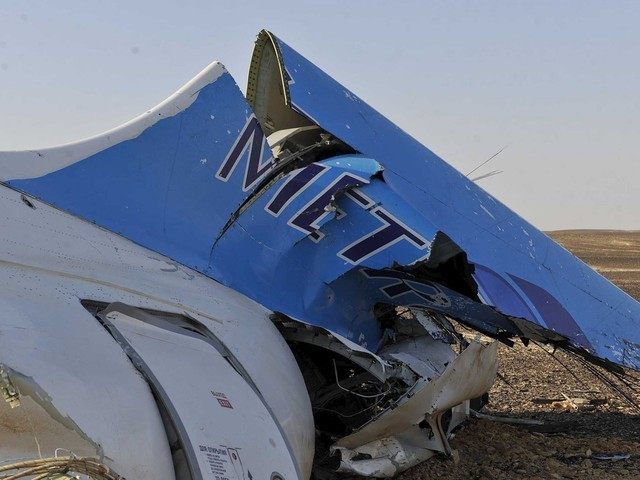Egypt finally conceded that “terrorism” was behind a Russian passenger plane crash in the Sinai Peninsula last October that killed all 224 tourists aboard.
The North African country, fearing that tourism would drop, was hesitant to admit to terrorism and maintained that technical problems caused the crash.
“Has terrorism ended? No. … Whoever downed that plane, what did he want? Just to hit tourism? No. To hit relations. To hit relations with Russia,” acknowledged Egyptian President Abdel Fattah el-Sissi for the first time on Wednesday.
Sissi had maintained that “propaganda” was fueling claims that Egypt’s Islamic State (ISIS/ISIL) branch downed the passenger plane on October 31.
The terrorist group claimed that “it smuggled a bomb on board the plane in the airport of Sharm el-Sheikh, a Sinai resort popular with [Russians],” notes The Times of Israel.
“Russia had quickly concluded that a bomb brought down the airliner, and suspended flights to Egypt,” it adds. “Britain also stopped flights to Sharm el-Sheikh. The attack dealt a major setback to Sissi, who had been at pains to revive the country’s tourism industry and impose control over the restive Sinai Peninsula.”
Jihadists in the Sinai Peninsula have reportedly killed hundreds of Egyptian policemen and soldiers since Sissi, then army chief, overthrew the Muslim Brotherhood Islamist president, Mohamed Morsi, in 2013.
“Egypt has set up a committee to investigate the attack, and previously insisted it be allowed to finish its probe before any conclusions were made,” reports The Times of Israel. “Egyptian media outlets have dismissed suggestions that a bomb was the cause as part of a Western ‘conspiracy’ aimed at harming the country’s tourism sector.”
“The A321 airliner, operated by Russia’s Metrojet and bound for Saint Petersburg, broke up mid-air over the Sinai, minutes after take-off,” it states. “The wreckage fell several kilometers across North Sinai — the bastion of the Egyptian branch of [ISIS].”
Egypt’s ISIS branch claimed it bombed the plane in revenge for Russian airstrikes on behalf of the Bashar al-Assad regime in Syria.
Russia’s President Vladimir Putin announced on November 17 that Russian investigators had found evidence of a bomb on board and vowed to punish the attackers.
“We will search for them anywhere they might hide. We will find them in any part of the world and punish them,” he said.
“Russian security chief Alexander Bortnikov said the passenger jet was brought down by a bomb with a force equivalent to one kilogram (two pounds) of TNT,” notes The Times of Israel. “Egypt has since hired a British firm to review security at airports, including procedures to check passengers and baggage, and security equipment in the airport.”
Egypt’s tourism sector reportedly lost 2.2 billion Egyptian pounds ($280 million) per month due to the Russian and British flight bans imposed after the October crash.
“Overall tourist arrivals fell sharply in 2015 to about 9.3 million, from 15 million in 2010. Revenues from tourism slumped 15 percent year-on-year to $6.1 billion in 2015,” according to The Times of Israel.

COMMENTS
Please let us know if you're having issues with commenting.